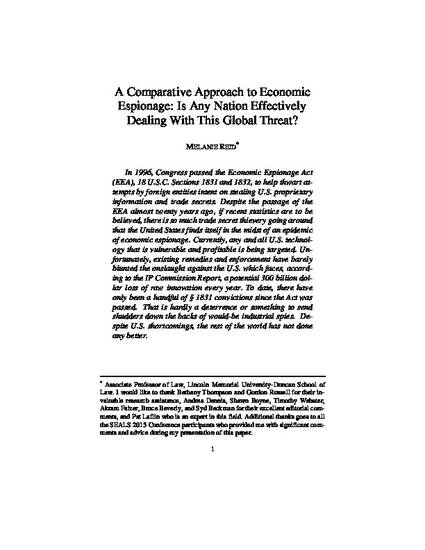
Article
A Comparative Approach to Economic Espionage: Is Any Nation Effectively Dealing With This Global Threat?
University of Miami Law Review
(2016)
Abstract
In 1996, Congress passed the Economic Espionage Act (EEA) to help thwart attempts by foreign entities from stealing U.S. companies’ proprietary information and trade secrets. The EEA focuses on the state-sponsored targeting of U.S. trade secrets and technology misappropriated with the intent to benefit a foreign government or an instrumentality. Currently, any and all U.S. technology that is vulnerable and profitable is being targeted. However, few cases have been filed using 18 U.S.C. Section 1831 (EEA). This article identifies the United States’ and other countries’ responses to economic espionage and who are the leading offenders. The article then evaluates this global response and explores the difficulties in prosecuting an economic espionage case, how corporate policies and strategic responses hamper potential criminal prosecution and/or civil litigation, and why the U.S. and global response to economic espionage has been so weak.
Keywords
- economic espionage,
- theft of trade secrets
Disciplines
Publication Date
2016
Citation Information
Melanie M. Reid. "A Comparative Approach to Economic Espionage: Is Any Nation Effectively Dealing With This Global Threat?" University of Miami Law Review Vol. 70 (2016) p. 757 Available at: http://works.bepress.com/melanie_reid/21/
